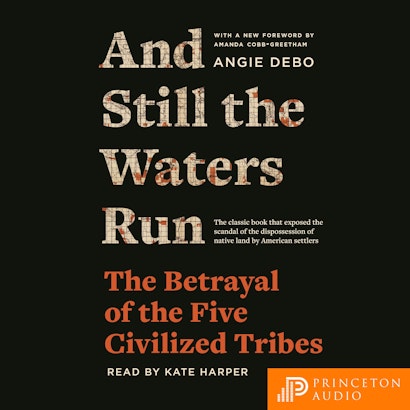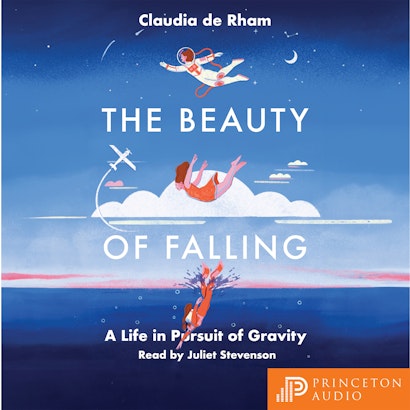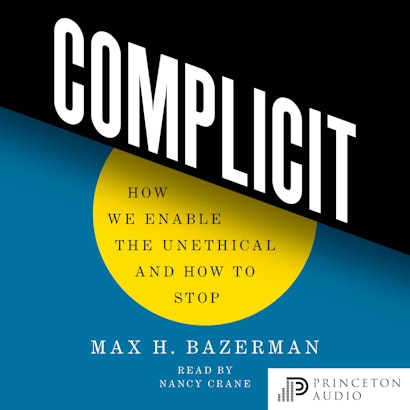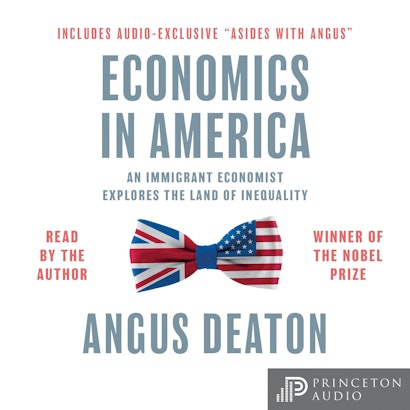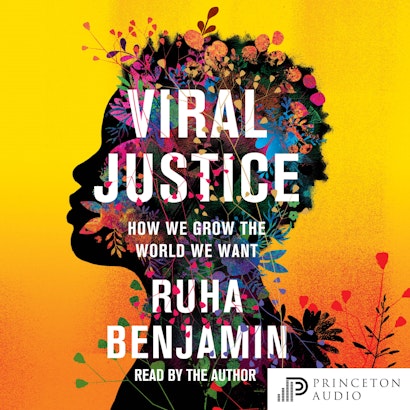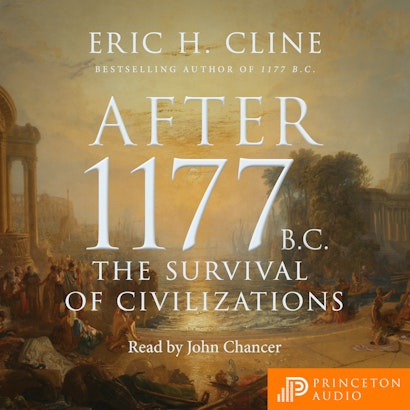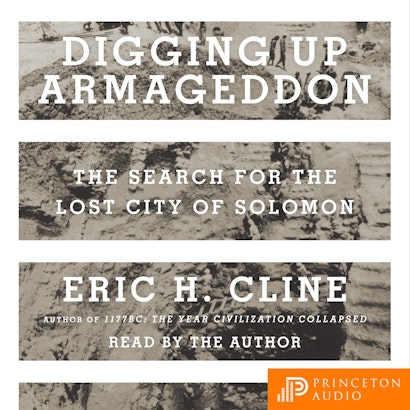Since launching an in-house audio imprint in 2018, 91��ɫ has released more than 150 audiobooks, including a recent audio edition of Karl Marx’s Capital: Critique of Political Economy, Volume 1, narrated by Simon Vance. In 2022, PUP expanded the program’s reach with the debut of an audiobook app and direct-to-consumer website sales, supported through a partnership with Glassboxx.
For a September Times Higher Education feature on university press audiobook publishing, Matthew Reisz spoke with Danielle D’Orlando, PUP’s Curator of Audio; PUP Director Christie Henry; and PUP author (and audiobook narrator) Eric Cline. They discuss how audiobooks lend themselves naturally to inclusive publishing and the format’s potential for bringing classic books to new life, deepening a reader’s connection with an author, and the “fascinating but exhausting” process of narrating one’s own book.
Read the full article, reprinted with permission, here.
From library to Spotify: academic audiobooks hit the mainstream
With the audiobook industry booming, university publishers are turning everything from hot new scholarly titles to Karl Marx’s catalogue into engrossing listening. Matthew Reisz speaks to academics, producers, and publishers about what makes a great audiobook and where the industry goes next.
September 26, 2024
Twitter:
Early last month, sat in to begin its latest recording. “University of Westminster Press presents,” he announces in the dramatic tones of an old-style radio presenter, “: How Citizens’ Assemblies Can Help Us Solve the Climate Crisis. By Graham Smith.”
We are immediately in the midst of the action. “In October 2019,” the book begins, “150 French citizens came together in Paris…to consider how the country could achieve a reduction in greenhouse gas emissions by at least 40 per cent by 2030 in a spirit of social justice.” Producer Jennifer Howard occasionally intervenes – “Just take a breath there” – or calls his attention to background noise from a passing bus or motorbike. Everything is reassuringly professional.
The book claims that “Citizens are much braver than their political representatives”, and Smith – founding chair of , as well as professor of politics at the – clearly hopes that his lively and accessible text will reach a wide audience. Cooper has just the right kind of enthusiastic and engaging delivery to bring it powerfully to life. One can imagine an activist, a policymaker or simply a concerned citizen listening to it while cooking, driving or exercising at the gym.
It is easy to see why a university press would want to make a book such as this available in audio format. Today, however, some also release far more specialist and demanding titles as audiobooks, while the “readers” who voice them range from genuine film stars to mere text-to-speech AI bots. So how have we got here – and what does it mean for academic authors?
Even back in the days of cassettes, many academic publishers licensed audio rights in some of their books to independent production companies, such as market leader . But in the digital age they are doing so on a far grander scale.
“I license as many of our titles for which I can find a suitable home,” explains Bill Smith, director of sales and marketing at MIT Press. Many of the most successful are “accessible books for the smart non-fiction reader/listener interested in how technology and the sciences are defining our world”.
“The audio publishers we work with carefully select the titles that they believe will be most effective in audio format,” adds Anna Chamberlain, senior business development manager at Oxford University Press. Those titles are often in fields such as history, politics, business, psychology and popular science, she explains. "We do, however, also receive requests from academics, students or professionals who are looking for audio versions of existing titles to listen to for enjoyment, research or business purposes.”
It was in 2018, says director Christie Henry, that 91��ɫ (PUP) started its pioneering audiobook programme, 91��ɫ Audio, “as part of a strategic evolution and modernisation of the press. It predated the pandemic, but we, like many other presses, experienced the increased engagement with digital formats during those years of lockdown.” Since the beginning, it has used Sound Understanding as its “studio partner”, a company that can draw on a stable of eight or nine producers with different areas of expertise and professional readers with enough knowledge of most major languages that they are likely able to correctly pronounce any foreign words a text might employ.
Although 91��ɫ’s focus was on “titles for general readers” and initially on newer content, explains Henry, it has “continued to engage audio as a tool for reanimating backlist titles, too, such as Angie Debo’s groundbreaking study of the dispossession of Native Americans, And Still the Waters Run: The Betrayal of the Five Civilized Tribes”, originally published in 1940.
More surprising, perhaps, 91��ɫ is publishing a major new translation of Karl Marx’s Capital next month and has commissioned an audio version of this, too. Capital has seldom been considered an easy read. A typical sentence runs: “If the labour contained in a commodity counts for something only qualitatively with respect to use-value, that labour counts for something only quantitatively with respect to magnitude of value, once it has been reduced to human labour without further properties.” Will many people want to listen to almost a thousand pages of a text such as this?
Henry points out that “the chance to reintroduce a work that has shaped so many, and the academy included, in a new edition is a thrill – this translation modernises Marx. And audio is part of that modernisation.” Furthermore, “there is a very skilled and engaged community of audiobook narrators, and many help us to create new markets for our books through their own influence within the audiosphere”. One of the best-known narrators in the US is , so Danielle D’Orlando, curator of audio at PUP, hopes he will “bring his own following to the book, adding consumers who might not otherwise pick up a translation of Das Kapital. We know that scholars and Marx intellectuals would look for this new translation, but a narrator with their own gravitas would grab those additional consumers who have never read Marx, perhaps fall into the curiosity category, or the ‘I’ve always wanted to read Das Kapital but have been intimidated by length or philosophy.’”
Other university presses have followed in 91��ɫ’s footsteps. The University of Chicago Press, notes marketing director Levi Stahl, has long licensed out “general interest books and longstanding classic backlist”, but “the increasing interest in audiobooks in the last few years” had led it also to create its own audiobooks, some using human narrators but most “auto-narrated using Google’s text-to-speech technology”. The latter offers “a range of options by gender, age, accent, et cetera, and we make a choice, with input from the author”.
Such technology, admits Stahl, “still has limitations” and can hardly match the best professional readers. At the other end of the scale, Sound Understanding has on occasion used genuinely big-name actors, including Simon Callow, Miriam Margolyes and Samuel West. Juliet Stevenson voiced The Beauty of Falling: A Life in Pursuit of Gravity (PUP), a book by Claudia de Rham, professor of theoretical physics at UCL, that mixes hard science with her personal experiences as a diver, pilot and candidate astronaut.
Publishers are understandably reluctant to reveal much detail about sales figures. However, the overall audiobooks market yielded an impressive £206 million in revenues in 2023, with about 28 million audiobooks sold in the UK. According to The Bookseller, 25 per cent of Spotify Premium users are streaming audiobooks from the 200,000 or so titles on that platform, reported last month.
However, Stahl says, the market for academic audiobooks is unlikely to rival more traditional offers. “We do not see this format eclipsing (or even coming close to) the market for the print and e-book editions…The audiobook market for more scholarly books, and even to some degree more serious general interest non-fiction, remains modest in comparison to the more developed markets for other formats.”
Audiobooks obviously offer flexibility and choice for consumers. PUP’s Henry also stresses the alignment with 91��ɫ’s “strategic equity and inclusion initiative”, given that audio represents a “born-accessible” format for readers who are, for example, dyslexic or visually impaired.
As representation and inclusion are now “of the utmost importance to any group of consumers”, says D’Orlando, this is considered when choosing narrators. It was “incredibly poignant”, she suggests, that Long Live Queer Nightlife: How the Closing of Gay Bars Sparked a Revolution by Amin Ghaziani, an author who is queer and Muslim, could be voiced by said to be “the first openly queer Muslim actor to play a leading role on a TV show”. In the case of Max Bazerman’s Complicit: How We Enable the Unethical and How to Stop, on the other hand, D’Orlando convinced the author to use the as narrator, “since female voices are under-represented in economics audiobooks”.
Audiobooks can also stand out from other formats by incorporating bonus material. D’Orlando flags up, for example, the “Asides with Angus” accompanying Angus Deaton’s Economics in America: An Immigrant Economist Explores the Land of Inequality, which includes his personal account of winning a Nobel prize and “an immensely powerful conversation between the author of Viral Justice, Ruha Benjamin, and the author of How to Be an Antiracist, ”.
So how do production companies go about adapting printed books to the audio format?
It is now standard to issue audiobooks essentially unabridged – although non-essential footnotes and appendices, as well as acknowledgements, bibliographies and indexes, are often dropped. Prior to recording, the team at Sound Understanding and similar companies go through the text in detail and propose minor cuts such as lengthy lists, complicated fractions it would be cumbersome to read aloud or sentences that make sense only in written form (for example, one about variant spellings). They decide where to include the kind of boxed material that is sometimes just plonked in the middle of a page in the hard copy, and they might invert parentheses for ease of listening.
There are obviously mathematical and scientific books so full of graphs and equations that they simply cannot work in audio format. Where illustrative material is not absolutely essential, Troy Juliar, chief content officer at Recorded Books, sometimes pursues the option of supplying it in “a supplemental PDF”, but producer Howard, who is a founding director of Sound Understanding, much prefers audiobooks to stand alone because “not all retailers can offer the PDF, and it is tiresome to be told to go off and look at a PDF while listening on the motorway!” In some cases, it is possible to simply drop certain figures (and references to them).
Yet often, says Marie-Claire Huntley, production coordinator at Sound Understanding, “we can and do paraphrase graphs”. Sometimes it is enough to provide the headline information such as “GDP rose 5 per cent between 2009 and 2015” without giving details of each year. Or the reader can say “Picture a bar chart with three different bars…” and then describe it in that way.
Authors are naturally asked to approve any such modifications. Yet their main quandary is whether to voice their books themselves or to leave it to the professionals or AI software.
Juliar at Recorded Books believes that authors “often underestimate the time and commitment it takes to narrate a book”, and he urges them to “ask themselves if they’re the best voice to carry their book and if it’s the best use of their time” – though for works that include many foreign words and titles, authors will still need to provide active and often time-consuming guidance on pronunciation before the professional reader goes into the studio.
MIT’s Smith agrees that voicing one’s own book is “not for the faint of heart. A 300-page work is equivalent to eight hours of finished audio. That’s tough work and should be left to the trained professional voice actor.”
Sound Understanding's Howard takes a more positive line: “I personally love having the authors reading because there’s an authenticity there. Where the publisher says the author is keen, we’ll check out their public speaking, how active they are. If they’re an engaging speaker, we can generally get a performance out of them.” The key for bringing newbie author-readers up to scratch, according to Huntley, is “loads of advance contact” to provide reassurance and the opportunity to “go through the technical stuff with a sound engineer”.
Asked for further guidance, Howard offers a few snappy suggestions: “Use the microphone as if you are speaking to one particular person. Sit up. Put your hands on your hips to open your diaphragm. Take control of your breath. And don’t wear jangly jewellery.”
A question of voice: three authors on deciding to narrate their audiobook, or not
For individual academic authors, a key question is whether to put themselves forward to read their own audiobooks.
For Noah Schwartz, assistant professor of political science at the in British Columbia, working on his ethnographic study : Gun Culture, Storytelling, and the NRA (University of Toronto Press) was “a deeply personal experience” that took him five years, “so the thought of turning it over to someone else to read felt wrong”. And because he had “attended a performing arts high school”, he “felt [he] had the right skills to get the job done”.
Although it proved “a daunting task”, juggling his other commitments around more than 20 hours in the studio, it also proved “way more enjoyable than I had thought it would be”, not least because his director at Sound Understanding, Marie-Claire Huntley, has a background in law enforcement and was fascinated by a book about guns and the National Rifle Association. This led to a lot of “sidebar conversations and questions” that helped keep him relaxed. His advice for others is simple: “Just bring lots of water, and don’t skip your vocal warm-ups.”
Paul Summerville, adjunct professor at the ’s Gustavson School of Business, also in British Columbia, took a different line with : How Economic Fairness Can Win Back Disenchanted Voters (Polity). The book, which he wrote with Eric Protzer, had “changed the conversation about populism” and provided “an architecture for creating successful social democracies”, he said. An audio version would enable the authors to reach policymakers such as “the guy on the train to Whitehall or the Home Office”, who probably does not have time to read books.
Yet Summerville was adamant that he did not want to do the reading himself. As he had run for Parliament twice, he had no fear of public speaking. But his father was a radio announcer and his godfather was “probably the most famous Canadian playing Americans in British film and television”, and he could hear them saying: “Get a professional to narrate your book.”
Although he and Protzer are both Canadian, Reclaiming Populism is as much about Europe as it is about the US (and hardly mentions Canada), and they did not want a narrator whose accent might imply to listeners that it was a very American book. They were therefore thrilled to be offered a British reader, Quentin Cooper, who had the skill to “speak the words like they’re coming out of his mouth for the first time”.
After selecting who should voice the book, Summerville was happy to leave the whole recording process to the professionals. Only the name of his Japanese wife, mentioned in the acknowledgements, proved a slight stumbling block for Cooper.
For other sorts of book, pronunciation is crucial. Eric Cline, professor of Classics and anthropology at in Washington DC, reckons he spent three days on the phone going through all the ancient names when 1177&�Բ�����;��. C.: The Year Civilization Collapsed (published, like his other books mentioned here, by 91��ɫ) was originally recorded as an audiobook, before being persuaded to do the reading for another of his books, Digging Up Armageddon: The Search for the Lost City of Solomon, as well as the revised version of 1177&�Բ�����;��. C. He found the process “fascinating but exhausting”, and he was constantly tempted – but not allowed – to “rephrase a sentence I thought in retrospect had been badly written”.
“I’m reading a 240-page book, and it’s eight hours a day for five days a week,” Cline recalls, “and the producer says: ‘Stop, you stumbled over one word, redo the whole paragraph.’ It’s like in the movies when they say, ‘Take 136’.”
After a few unkind reviews, however, Cline decided enough was enough and started insisting on professional readers. For his most recent book, After 1177&�Բ�����;��. C.: The Survival of Civilizations, he opted to record just the preface, which is written in the first person, and the acknowledgements, “because so many of the people I was thanking are Greek, Israeli, Turkish or whatever, so I wanted to be the one who either properly pronounced or mangled their names. I didn’t want to have to blame it on someone else.”
In the event, Cline was delighted by the way that L. J. Ganser, the reader for Three Stones Make a Wall: The Story of Archaeology, “made it sound like a detective novel. I’m on the edge of my seat, waiting for what happens next – and I wrote the darn thing!”
Equally gratifying has been the feedback on social media from “people who literally don’t have time to read but do spend two hours each day commuting in the car or on the treadmill”.
The above piece was originally published in and is reprinted here with permission.
Browse a full selection of 91��ɫ audiobooks here.
